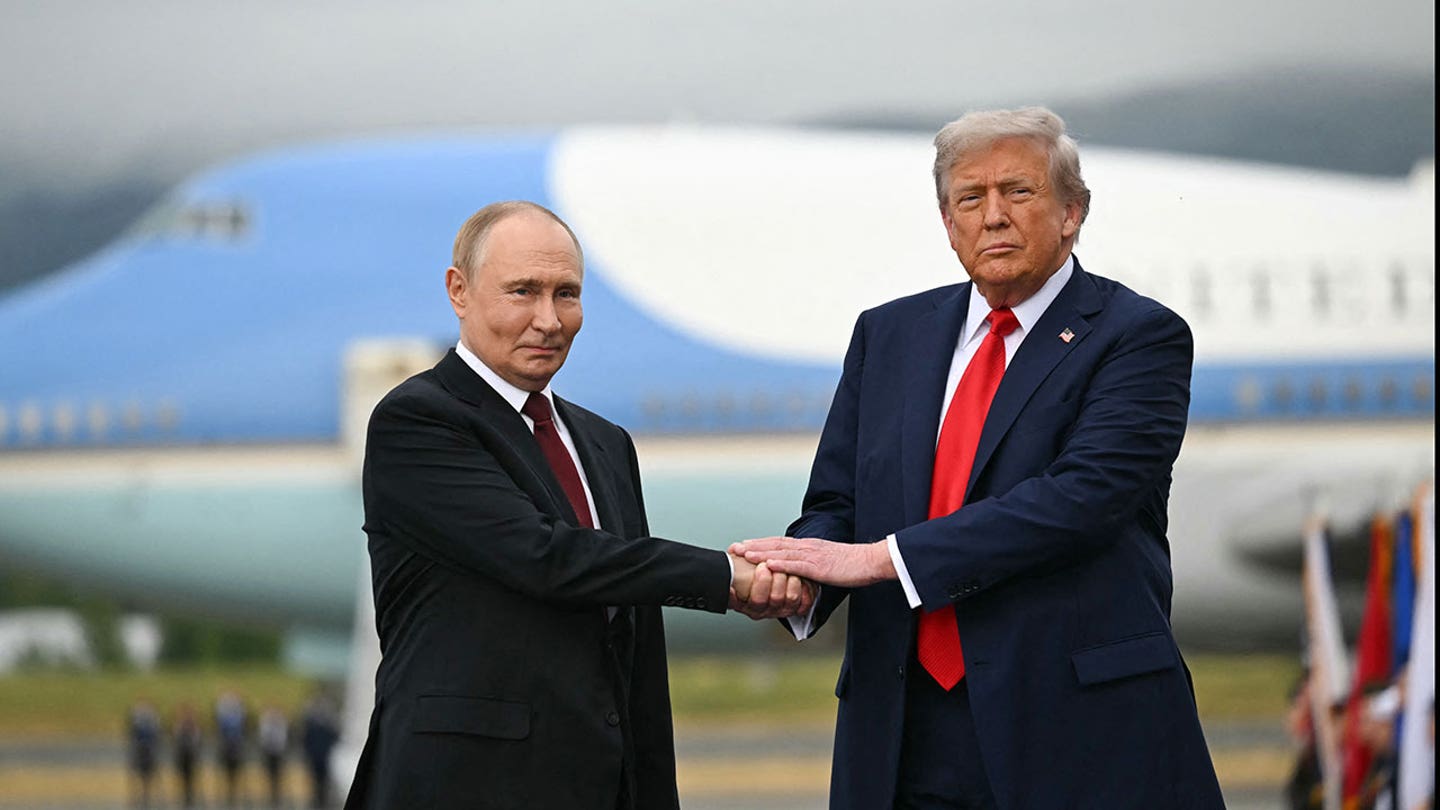
Housing chief: Opportunity zones change people's lives
Entities mentioned:
- Scott Turner: Professional pride, Duty, Influence
- U.S. Housing and Urban Development: Duty, Influence, Unity
- Lara Trump: Influence, Recognition, Ambition
Article Assessment:
Credibility Score: 50/100
Bias Rating: 65/100 (Lean Right)
Sentiment Score: 70/100
Authoritarianism Risk: 35/100 (Generally Democratic)
Bias Analysis:
The article leans right due to its featuring of a Trump administration official and Lara Trump, a member of the Trump family. The framing appears to present opportunity zones in a positive light without presenting alternative viewpoints or potential criticisms.
Key metric: Economic Mobility
As a social scientist, I analyze that this article focuses on the impact of opportunity zones on communities across the United States. The discussion of 'transforming' communities suggests potential improvements in economic conditions and quality of life for residents in these areas. This could positively affect economic mobility by creating new opportunities for employment, business development, and investment in previously underserved areas. However, the lack of specific data or examples in the article limits a comprehensive assessment of the actual impact on economic mobility.

Trump backs Putin's proposal for Russia to take full control of Donbas region in Ukraine
Entities mentioned:
- Vladimir Putin: Power, Control, Influence
- Donald Trump: Influence, Recognition, Legacy
- Volodymyr Zelenskyy: Determination, Duty, Self-preservation
- Friedrich Merz: Duty, Influence, Unity
Article Assessment:
Credibility Score: 65/100
Bias Rating: 55/100 (Center)
Sentiment Score: 35/100
Authoritarianism Risk: 60/100 (Mixed/Neutral)
Bias Analysis:
The article presents multiple viewpoints and cites various sources, including European diplomats and U.S. officials. However, it leans slightly towards emphasizing Trump's actions and their potential impact, which could be seen as centrism with a slight right-leaning tone.
Key metric: International Diplomatic Influence
As a social scientist, I analyze that this article highlights a significant shift in U.S. foreign policy regarding the Russia-Ukraine conflict. Trump's support for Putin's proposal to take control of the Donbas region could drastically alter the course of the war and international relations. This move potentially undermines Ukraine's sovereignty and NATO allies' united front against Russian aggression. The change from supporting a ceasefire to pushing for a peace agreement aligned with Russian interests suggests a major realignment of U.S. policy that could have far-reaching consequences for global geopolitics and the balance of power in Eastern Europe.

Trump: We're going straight to Russia-Ukraine peace deal, 'not a mere ceasefire'
Entities mentioned:
- Donald Trump: Ambition, Legacy, Power
- Vladimir Putin: Power, Security, Control
- Volodymyr Zelenskyy: Justice, Self-preservation, Unity
- Keir Starmer: Duty, Unity, Influence
- Emmanuel Macron: Influence, Unity, Duty
Article Assessment:
Credibility Score: 65/100
Bias Rating: 55/100 (Center)
Sentiment Score: 65/100
Authoritarianism Risk: 35/100 (Generally Democratic)
Bias Analysis:
The article presents multiple perspectives, including those of Trump, Putin, and Zelenskyy, providing a relatively balanced view. However, there's a slight emphasis on Trump's role and optimism about the peace process, which could indicate a subtle center-right lean.
Key metric: International Diplomacy Effectiveness
As a social scientist, I analyze that this article presents a significant shift in the approach to the Russia-Ukraine conflict, with Trump positioning himself as a key mediator aiming for a comprehensive peace deal rather than a ceasefire. This approach could potentially impact international diplomacy effectiveness by bypassing traditional diplomatic channels and leveraging personal relationships between leaders. The involvement of European leaders suggests a coordinated Western approach, but the effectiveness hinges on Putin's willingness to participate in a trilateral meeting and make concessions. The article implies a potential breakthrough, but the long-term sustainability of any agreement remains uncertain given the complex security concerns and historical context of the conflict.

Trump reveals 10 striking takeaways from Putin summit in Hannity interview
Entities mentioned:
- Donald Trump: Power, Recognition, Self-preservation
- Vladimir Putin: Power, Control, Influence
- Sean Hannity: Loyalty, Influence, Professional pride
- Volodymyr Zelenskyy: Unity, Self-preservation, Duty
- Joe Biden: Power, Legacy, Duty
Article Assessment:
Credibility Score: 45/100
Bias Rating: 75/100 (Lean Right)
Sentiment Score: 70/100
Authoritarianism Risk: 55/100 (Mixed/Neutral)
Bias Analysis:
The article leans right, primarily due to its uncritical presentation of Trump's claims and the exclusive use of Trump and Hannity as sources. The framing portrays Trump in an overwhelmingly positive light while implicitly criticizing the current administration.
Key metric: International Relations and Diplomacy
As a social scientist, I analyze that this article presents a significant impact on US international relations and diplomacy. Trump's portrayal of his meeting with Putin as highly successful, coupled with his claims about Russia's newfound respect for America, could influence public perception of US-Russia relations. The emphasis on deal-making and Trump's willingness to participate in trilateral talks suggests a shift towards more direct, personalized diplomacy. However, the inclusion of comments about the 2020 election being rigged introduces domestic political controversy into foreign policy discussions, potentially undermining the credibility of US democratic institutions on the global stage. The article's framing of Trump as a key mediator between Russia and Ukraine, while sidelining current administration efforts, may create confusion about the official US stance on the conflict.

Melania Trump urges Putin to protect children in 'peace letter' delivered at US-Russia summit
Entities mentioned:
- Melania Trump: Righteousness, Influence, Unity
- Vladimir Putin: Power, Control, Influence
- Donald Trump: Ambition, Legacy, Influence
- Volodymyr Zelenskyy: Self-preservation, Unity, Duty
- Joe Biden: Legacy, Influence
Article Assessment:
Credibility Score: 65/100
Bias Rating: 70/100 (Lean Right)
Sentiment Score: 60/100
Authoritarianism Risk: 35/100 (Generally Democratic)
Bias Analysis:
The article leans right, given its exclusive source (Fox News) and positive framing of Trump's diplomatic efforts. It presents the Trump administration's actions in a favorable light while minimizing mention of other diplomatic efforts.
Key metric: International Relations and Diplomacy
As a social scientist, I analyze that this article highlights a significant diplomatic effort by the Trump administration to engage with Russia on the issue of the Ukraine war. The use of a 'peace letter' from Melania Trump to Putin represents an unconventional approach to diplomacy, appealing to humanitarian concerns and shared values of child protection. This strategy attempts to bypass traditional diplomatic channels and leverage personal relationships. The summit's outcomes suggest some progress but no definitive resolution, indicating the complexity of the geopolitical situation. The planned meeting with Zelenskyy demonstrates an attempt at balanced engagement with both sides of the conflict. This approach could potentially impact US-Russia relations and the ongoing situation in Ukraine, but its effectiveness remains uncertain.

Fooled by Putin again? Trump’s rhetoric suggests he could be
Entities mentioned:
- Donald Trump: Power, Recognition, Legacy
- Vladimir Putin: Control, Power, Influence
- Karoline Leavitt: Duty, Loyalty, Professional pride
- Marco Rubio: Duty, Professional pride, Influence
- Volodymyr Zelensky: Self-preservation, Unity, Justice
- Melania Trump: Loyalty, Self-preservation, Wariness
Article Assessment:
Credibility Score: 75/100
Bias Rating: 35/100 (Lean Left)
Sentiment Score: 30/100
Authoritarianism Risk: 25/100 (Generally Democratic)
Bias Analysis:
The article leans slightly left, evidenced by its critical tone towards Trump's handling of Putin and Russia. While it presents factual information, the framing and language choices suggest a skeptical view of Trump's diplomatic abilities.
Key metric: International Relations and Diplomacy
As a social scientist, I analyze that this article highlights the complex dynamics of US-Russia relations, particularly focusing on President Trump's approach to diplomacy with Vladimir Putin. The article suggests that Trump's rhetoric and actions regarding Putin have been inconsistent and potentially naive, raising concerns about his ability to negotiate effectively. The frequent shifts in Trump's stance on Putin, from warm praise to criticism, indicate a lack of a coherent strategy in dealing with Russia. This inconsistency could potentially weaken the US position in international diplomacy and affect its relationships with allies. The article also points to a disconnect between Trump's public statements and the realities of the situation in Ukraine, which could undermine US credibility on the global stage. The low public confidence in Trump's ability to make wise decisions about the Ukraine war further compounds these concerns, potentially affecting the US's soft power and diplomatic influence.

Judge blocks Trump administration guidance against DEI programs at schools and colleges
Entities mentioned:
- Trump administration: Control, Power, Righteousness
- Judge Stephanie Gallagher: Justice, Duty, Professional pride
- Education Department: Control, Power, Obligation
- American Federation of Teachers: Justice, Professional pride, Unity
- American Sociological Association: Justice, Professional pride, Unity
- Democracy Forward: Justice, Moral outrage, Influence
- Skye Perryman: Justice, Moral outrage, Influence
- Craig Trainor: Control, Righteousness, Power
Article Assessment:
Credibility Score: 75/100
Bias Rating: 45/100 (Center)
Sentiment Score: 55/100
Authoritarianism Risk: 35/100 (Generally Democratic)
Bias Analysis:
The article presents multiple viewpoints, including those of the Trump administration and its critics. While it gives more space to critics of the administration's policies, it also includes the Education Department's response, maintaining a relatively balanced approach.
Key metric: Educational Equity and Inclusion
As a social scientist, I analyze that this ruling significantly impacts educational equity and inclusion in the United States. The judge's decision to block the Trump administration's guidance against DEI programs preserves the ability of educational institutions to implement diversity initiatives. This maintains the status quo in terms of efforts to address historical inequalities in education. The ruling highlights the tension between different interpretations of civil rights law and educational policy, particularly in the wake of the 2023 Supreme Court decision on race in college admissions. The case underscores the ongoing debate about the role of race and diversity in American education, with potential long-term implications for social mobility, representation, and societal equity.

Jasmine Crockett proclaims she hates the Heritage Foundation ‘with everything in my in my body’
Entities mentioned:
- Jasmine Crockett: Moral outrage, Righteousness, Indignation
- The Heritage Foundation: Influence, Power, Control
- Al Sharpton: Influence, Recognition, Justice
- Ayanna Pressley: Unity, Justice, Influence
- Supreme Court: Justice, Power, Legacy
Article Assessment:
Credibility Score: 70/100
Bias Rating: 30/100 (Lean Left)
Sentiment Score: 25/100
Authoritarianism Risk: 35/100 (Generally Democratic)
Bias Analysis:
The article leans left due to its focus on a Democratic representative's criticism of a conservative organization. While it includes some context, it primarily presents the perspective of Rep. Crockett without significant counterbalance from The Heritage Foundation.
Key metric: Political Polarization Index
As a social scientist, I analyze that this article highlights the increasing political polarization in the United States. Rep. Crockett's strong language against The Heritage Foundation, a conservative think tank, exemplifies the growing divide between left and right ideologies. The discussion of Project 2025 and abortion legislation further underscores the contentious nature of current political discourse. The comparison of political strategy to emotional manipulation in car sales suggests a cynical view of how public opinion is shaped, which could contribute to decreased trust in political institutions and processes. This intense polarization can hinder bipartisan cooperation and effective governance, potentially impacting the overall functioning of democracy.

Social Security stronger under Trump, critics pushing ‘false’ narrative, commissioner says
Entities mentioned:
- Donald Trump: Power, Legacy, Self-preservation
- Frank Bisignano: Loyalty, Professional pride, Righteousness
- Democrats: Moral outrage, Control, Unity
- Social Security Administration: Duty, Efficiency, Security
- Joe Biden: Competitive spirit, Control, Legacy
Article Assessment:
Credibility Score: 55/100
Bias Rating: 75/100 (Lean Right)
Sentiment Score: 70/100
Authoritarianism Risk: 35/100 (Generally Democratic)
Bias Analysis:
The article heavily favors the Trump administration's perspective, primarily quoting the Social Security commissioner appointed by Trump. It lacks opposing viewpoints or independent expert analysis, presenting a one-sided narrative that aligns with right-leaning political views.
Key metric: Social Security System Efficiency
As a social scientist, I analyze that this article presents a defense of the Trump administration's management of Social Security, countering criticisms from Democrats. The key points revolve around improved efficiency through technology adoption, reduced wait times, and cleared backlogs. The commissioner, Frank Bisignano, argues that critics are pushing a false narrative due to political motivations. The article suggests a significant transformation in Social Security operations, moving from a check-based system to a more technologically advanced one. However, the strong partisan tone and lack of opposing viewpoints raise questions about the balanced representation of the issue. The emphasis on operational improvements without addressing long-term sustainability concerns presents a potentially incomplete picture of Social Security's overall health.

All eyes on Washington, and naught but deafening silence from the District's loudest defender
Entities mentioned:
- Eleanor Holmes Norton: Duty, Justice, Determination
- David Dreier: Control, Power, Influence
- Donald Trump: Power, Control, Influence
- Muriel Bowser: Duty, Self-preservation, Indignation
- Chris Van Hollen: Justice, Moral outrage, Duty
- Brandon Scott: Duty, Justice, Indignation
- Phil Mendelson: Loyalty, Wariness, Duty
- Hakeem Jeffries: Unity, Loyalty, Self-preservation
- Kinney Zalesne: Ambition, Justice, Competitive spirit
Article Assessment:
Credibility Score: 75/100
Bias Rating: 45/100 (Center)
Sentiment Score: 35/100
Authoritarianism Risk: 55/100 (Mixed/Neutral)
Bias Analysis:
The article presents multiple perspectives and quotes from various political figures, maintaining a relatively balanced approach. While it raises questions about Norton's recent inactivity, it also provides context and historical background, avoiding overtly partisan language.
Key metric: Democratic Representation
As a social scientist, I analyze that this article highlights a critical juncture in Washington D.C.'s struggle for full representation and local autonomy. The absence of Eleanor Holmes Norton's typically forceful advocacy during a time of federal intervention in local affairs underscores the precarious position of D.C.'s governance. This situation exemplifies the ongoing tension between federal control and local self-determination in the District, impacting the key metric of Democratic Representation. The deployment of federal forces without local consent and the relative silence of D.C.'s primary congressional advocate raise significant questions about the balance of power and the effectiveness of non-voting representation. This event may serve as a catalyst for renewed discussions on D.C. statehood and the broader implications for democratic representation in the U.S. political system.